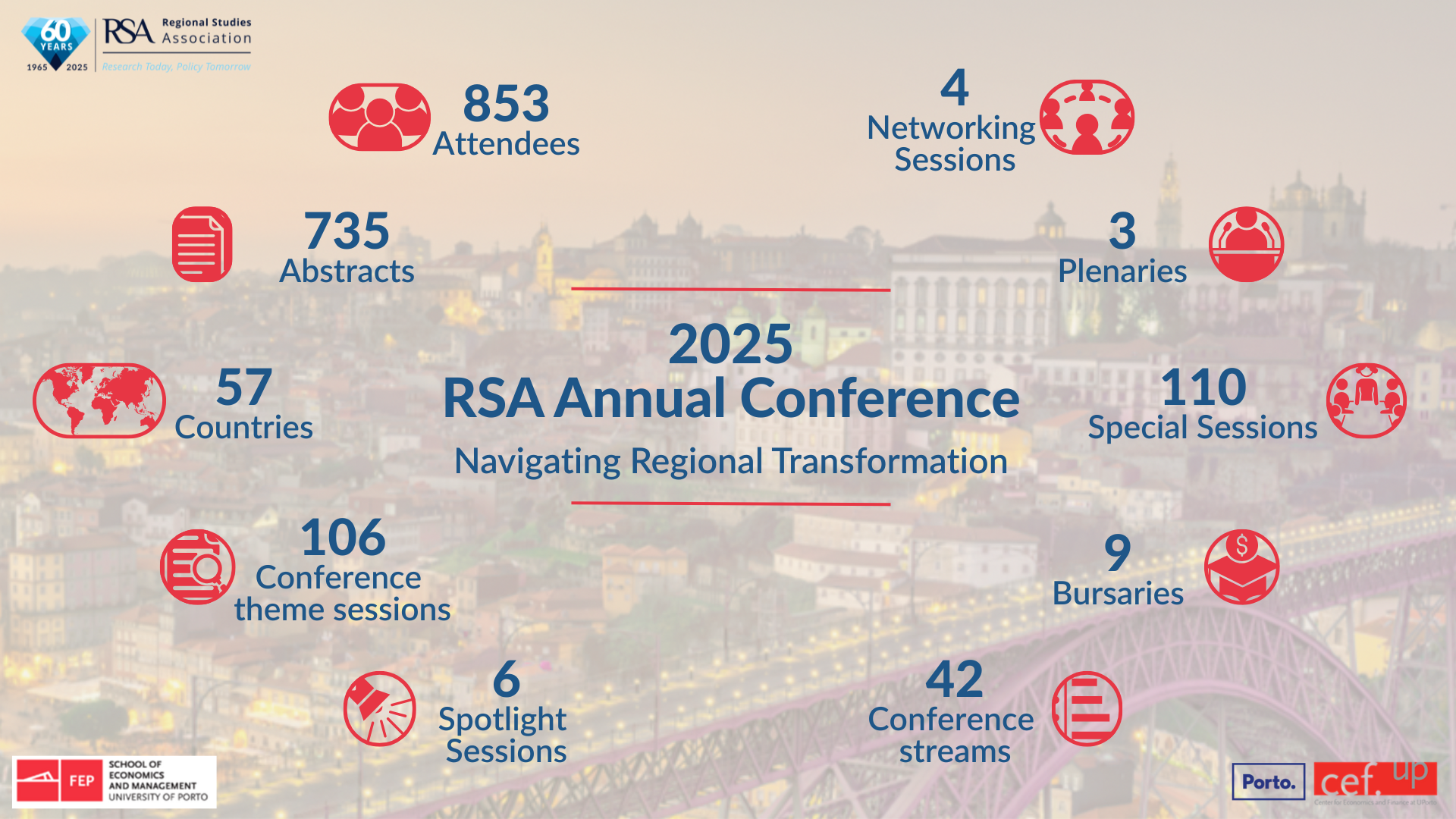RSA Events – Event Report – RSA Annual Conference, Digital Transformation and Financial Inclusion in the Age of Crypto

RSA Events – Event Report – RSA Annual Conference, Digital Transformation and Financial Inclusion in the Age of Crypto
The Case of Bitcoin and DeFi among Freelancers in Argentina
2025 RSA Annual Conference
Navigating Regional Transformation
University of Porto, Portugal
6 May 2025 – 9 May 2025

Report on Digital Transformation and Financial Inclusion in the Age of Crypto
The Case of Bitcoin and DeFi among Freelancers in Argentina
By Juliana Pertusi (email), PhD Candidate – Flacso, Argentina.
Keywords: Bitcoin/DeFi; alternative financial system; a new grammar of belief; economic autonomy; crisis-driven innovation; opt-out economies; Argentina
At the southern end of the global economy, Argentina has long served as a laboratory for economic uncertainty. Amid chronic inflation, periodic devaluations, and a persistent erosion of public trust in state institutions, decentralised finance (DeFi) and Bitcoin are emerging as instruments of cultural and economic reinvention, not just as speculative tools. This work explores how individuals in Argentina are adopting decentralised technologies to preserve value and to reclaim agency in a context marked by volatility and distrust. From an ethnographic perspective, these lines situate the adoption of DeFi protocols and Bitcoin within broader processes of cultural transformation, foregrounding the narratives of those who see in the blockchain not just a ledger, but a promise.
1. Beyond speculation, autonomy emerges as a response to crisis
While global headlines often frame crypto adoption as driven by financial speculation, the Argentine case tells a different story. Here, DeFi and Bitcoin respond to an urgent need, driven by the desire to opt out of a system that seems no longer to work. With high inflation rates and a weakening national currency, digital assets offer more than an economic response; they provide stability and a way to envision alternative futures. DeFi protocols, despite their technical complexity, are increasingly being explored by everyday users, such as freelancers, entrepreneurs, and students, who not only seek profits but also protection. In exchange for the time and effort invested in learning these tools, users gain access to non-custodial platforms, fixed-supply currencies, and borderless forms of capital.
2. Bitcoin as a cultural force, grounded in belief, shaped by survival, and anchored in a code of trust
Bitcoin in Argentina is not simply held; it is believed in. Among its adopters, the protocol is often described in terms that echo religious language, as it features founding texts, prophets, rituals, and a promise of salvation. What begins as a financial decision —whether to buy, hold, or use Bitcoin —often evolves into a worldview rooted in self-sovereignty, transparency, and distrust of intermediaries. For many, self-custody is not a technical feature but a political stance. In a country where banks have frozen savings overnight and governments have restricted access to foreign currencies, the idea of holding one’s keys becomes deeply symbolic. To believe in Bitcoin is, in part, to reject the broken promises of the past.
3. Bitcoin as a System of Belief
In the Argentine context, Bitcoin and DeFi are not merely financial tools. They operate as a symbolic system, offering structure, meaning, and direction amid economic disorder. This system is anchored in lived experience and shaped by collective narratives of decline and resistance. As observed in the following schema, it articulates a moral geography of economic life: the inferno of hyperinflation, devaluation, debt traps, financial exclusion, and bureaucratic control; the purgatory of those still navigating fiat systems while tentatively exploring the crypto world; and the promise of salvation through self-custody, disintermediation, and protocol-based trust. Like all belief systems, it has its prophets (cypherpunks, educators, developers, and local Bitcoin advocates) who translate abstract code into social practice. It has rituals: storing keys offline as an act of emancipation, holding on through volatility as a form of devotion, peer education as missionary work, and safeguarding seed phrases as sacred relics. Its gospel is the Nakamoto White Paper; its temple is a decentralised and publicly verifiable network, sustained by nodes. The system rests on an ethic of sovereignty: borderless, immutable, and entirely one’s own.

4. Rituals and Communities of Meaning Adoption is rarely solitary.
From Telegram groups and local meetups to online courses and NFT experiments, the Bitcoin and DeFi communities in Argentina are vibrant spaces for exchanging information, identity, and purpose. People speak of “orange-pilling” (crypto evangelisation) among friends and family. They celebrate new blocks. They regret rug pulls (a type of crypto scam where developers disappear with investors’ money) and rejoice at protocol upgrades. These are not just financial interactions; they are rituals that create a sense of belonging. Furthermore, the process called “Orange pilling” implies evangelising people to be part of the Bitcoin ecosystem as a cultural conversion, which is grounded in autonomy and distrust of traditional institutions. During a field interview in Buenos Aires, a young entrepreneur described how he had “orange-pilled” his parents after a bank froze their dollar savings: “At first, they thought I was crazy. But then I showed them how they could hold their keys, and now my mom reads more Bitcoin blogs than I do.” In these communities, code is not neutral; it is a matter of ethics. The principles of decentralization, immutability, and permissionless participation become ideals to live by. Trust, once broken in institutions, is redirected toward protocols and each other.
5. The Desire to Opt Out and to Build Something Else
At its core, the adoption of DeFi and Bitcoin in Argentina is driven by a collective desire to exit, resist, and reimagine. Exit from inflationary policies and from the broader experience of stagnation, where buying a home, accessing affordable credit, or building a dignified future has become increasingly complex. Resistance to shady power structures. And reimagination of what political and financial life could look like without banks, middlemen, brokers, or gatekeepers. This desire is not utopian. It is grounded in daily practice, shaped by hardship, and sustained by community. And while it may not (yet) represent a massive adoption, it marks a critical undercurrent in terms of a cultural reorientation toward autonomy through technology.
Final thoughts. Rewriting the Script from the Margins
In a world increasingly shaped by economic precarity and digital intermediation, the Argentine experience with DeFi and Bitcoin offers more than a case study. It offers a lens. From the periphery, a different future is being envisioned; one where code becomes culture, and survival becomes a strategic imperative. As regional studies strive to understand how people respond to systemic breakdowns, Argentina demonstrates that opting out is not withdrawal, but rather a form of creation. And what is being created here, block by block, is not just an alternative financial system, but a new grammar of belief.
Complementary reading
RSA Events – Event Report – RSA Annual Conference, Inclusive Growth, Housing, and Well-Being
RSA Events – Event Report – RSA Annual Conference, Entrepreneurship and Entrepreneurial Ecosystems
Conference Statistics

The Regional Studies Association’s Annual Conference 2025 #RSA25 was held in partnership with the School of Economics and Management at the University of Porto, Portugal. This four-day conference brought together academics and policymakers to exchange news, views, and research findings from regional studies and science, as well as regional and economic development, policy, and planning. There was representation from 57 different global territories as we gathered established experts and early career researchers in the beautiful city of Porto.
The conference featured 750+ presentations, high-profile plenary speakers, several specially convened sessions, workshops, professional development and networking sessions, walking tours and field trips. The social programme included the conference dinner and a reception, as well as side events, exhibitor stalls, and post-conference tours to explore Porto.